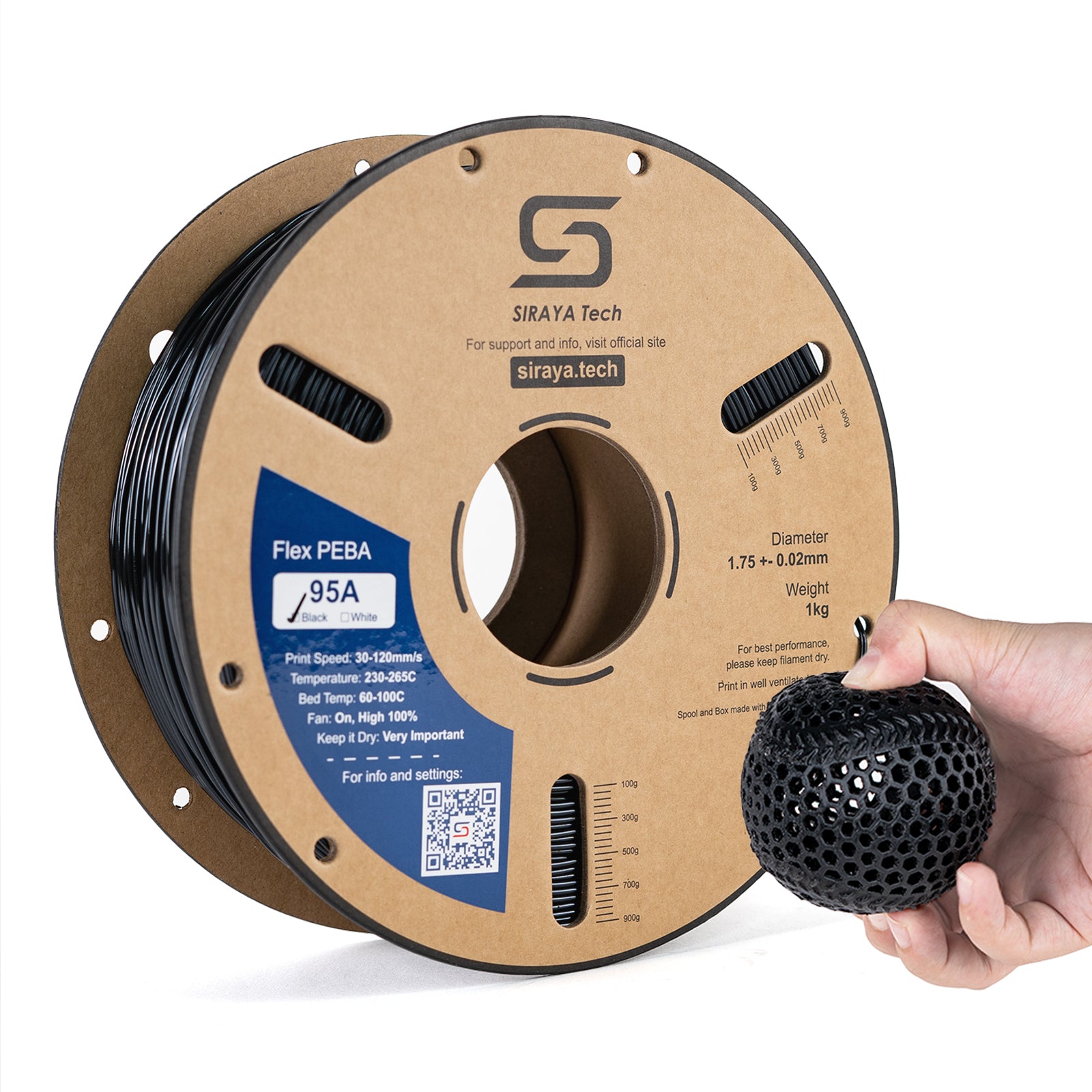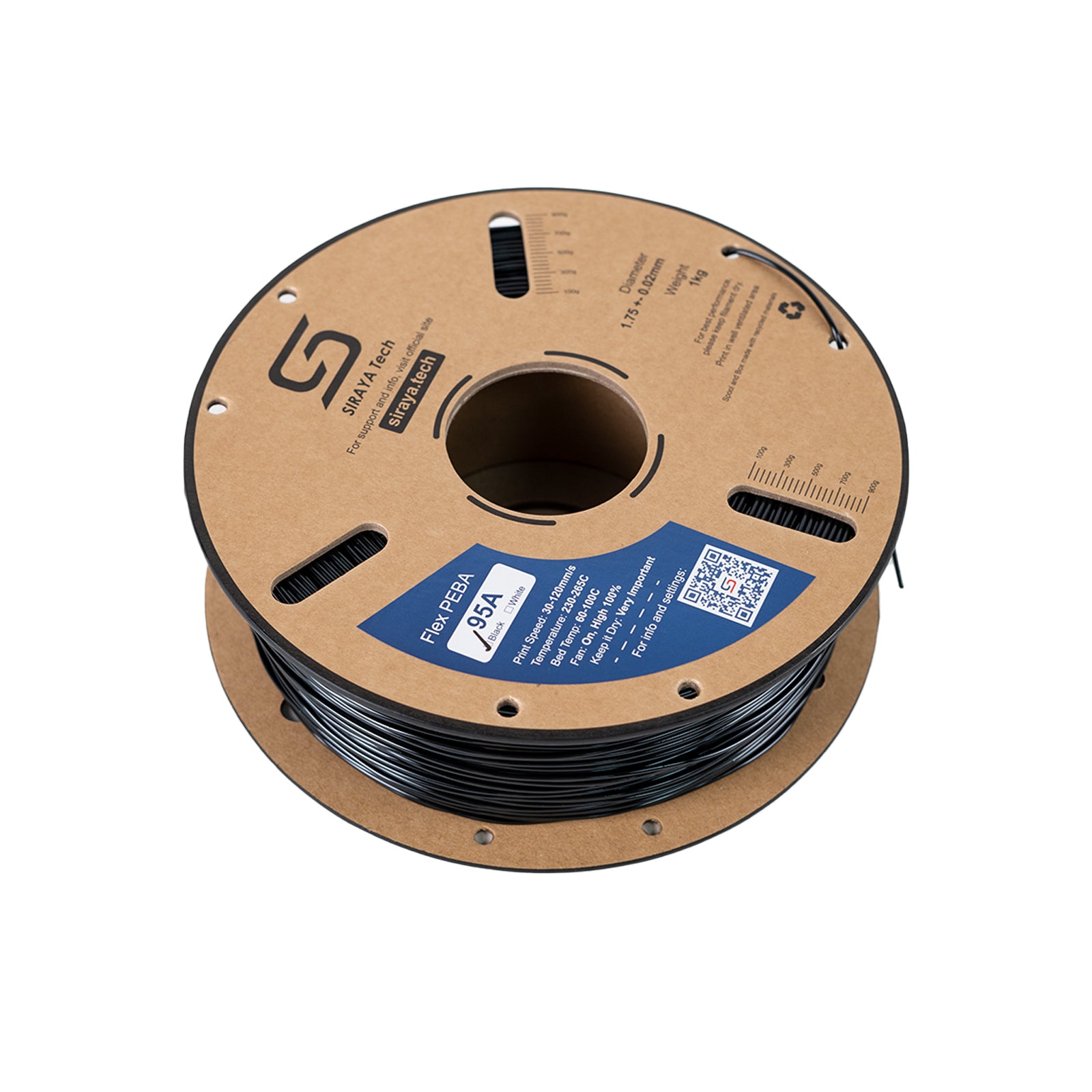Recently viewed
Flexible resin 3D printing opens up endless possibilities for creating bendable, durable parts that maintain their shape while offering exceptional elasticity. Whether you're prototyping rubber-like components, creating functional gaskets, or designing flexible hinges, our premium flexible resin collection delivers professional-grade results for demanding applications.
Flexible Resin 3D Printing: Superior Flexibility, Dynamic Applications
Our flexible resins are engineered to deliver exceptional elasticity without compromising print quality or detail resolution. These advanced formulations maintain their flexible properties over time, ensuring your printed parts perform consistently in real-world applications.
- Shore hardness ranging from 40A to 80A for varied flexibility levels
- Excellent tear resistance for long-lasting performance
- UV-stable formulation prevents degradation over time
- Compatible with most LCD and DLP 3D printers
-
Low odor printing experience
For projects requiring rigid thermoplastic materials, explore our comprehensive 3D printing filament collection offering premium FDM solutions.
Enhanced Durability and Resilience
Built to withstand repeated flexing and stretching, these resins maintain structural integrity even under stress. The advanced polymer chemistry ensures your flexible prints won't crack, tear, or lose their elastic properties with regular use.
- High elongation at break (up to 300%)
- Exceptional fatigue resistance for repeated use
- Temperature stable from -20°C to 80°C
- Chemical resistance to common solvents and oils
- Easy post-processing with standard IPA cleaning
Precise Detail Retention in Flexible Prints
Unlike traditional flexible materials that sacrifice detail for elasticity, our flexible resins maintain crisp edges and fine features while delivering the flexibility you need for functional applications.
- Layer adhesion optimized for complex geometries
- Minimal shrinkage during curing process
- Supports intricate internal structures and thin walls
- Consistent dimensional accuracy across print bed
- Fast curing times for efficient production
Need maximum strength and performance? Discover our engineering resin series for high-performance rigid parts that excel in demanding industrial applications.
Versatile Applications Across Industries
From automotive prototyping to consumer products, our flexible resin collection serves diverse manufacturing needs. These materials bridge the gap between rigid plastics and soft rubbers, offering designers unprecedented creative freedom.
- Medical device prototyping and custom prosthetics
- Automotive seals, gaskets, and flexible components
- Consumer electronics cases and protective covers
- Art and jewelry applications requiring flexibility
- Educational models demonstrating mechanical principles
For advanced thermoplastic solutions requiring exceptional chemical and temperature resistance, explore our PPA filament range designed for the most challenging applications.
Frequently Asked Questions: Flexible Resin 3D Printing
Is there a flexible 3D resin?
Yes, flexible 3D printing resins are specifically formulated to produce bendable, elastic parts. These specialized photopolymers cure under UV light while maintaining rubber-like properties. They're available in various shore hardness levels to match different flexibility requirements.
What to do if resin is flexible?
Flexible resin requires careful handling during printing and post-processing to avoid damage. Use appropriate support structures and slower peel speeds during printing. Handle printed parts gently during cleaning and curing to prevent tearing or deformation.
Is flexible PLA better than TPU?
Flexible PLA and TPU serve different purposes - PLA is easier to print but less flexible than TPU. TPU offers superior elasticity and durability for functional parts. The choice depends on your specific application requirements and printer capabilities.
Which resin is more flexible?
Flexibility in resins is measured by Shore hardness ratings - lower numbers indicate greater flexibility. Resins rated 40A Shore hardness are more flexible than those rated 80A. Choose based on your application's specific elasticity and durability requirements.


